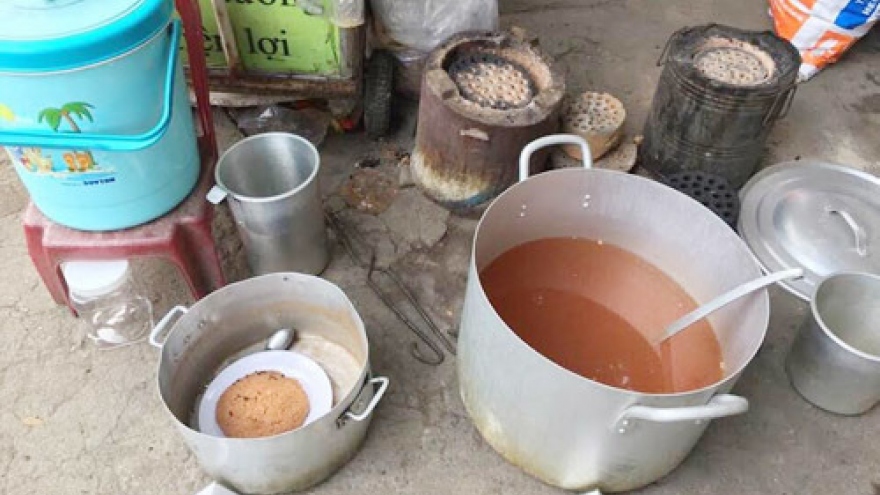Cause of mass poisoning behind 7 deaths in northern Vietnam identified
Methanol-tainted alcohol has been identified as the cause behind mass food poisoning that left seven dead and 31 hospitalized in a northern province earlier this week, Vietnam’s food safety watchdog said on February 15.
 |
On February 10, a 60-year-old man in Ma Ly Chai Commune, a remote area bordering China, in the province’s Phong Tho District died after drinking home-made alcohol. His funeral was held the following day.
Unaware of the true cause of death, villagers at the funeral were treated to the same alcohol, identified as a home-made product bought from the nearby Si Lo Lau Commune. They too fell severely ill.
By the following day, six of the funeral visitors had died. Thirty-three others were rushed to hospital over the next three days with severe headaches and nausea.
The Vietnam Food Administration took three samples of the alcohol served at the funeral for testing and found that methanol levels in the drinks ranged between 970 mg/l and 556,000 mg/l.
The current legally allowed methanol content in alcohol is only 100 mg/l.
“Those grossly excessive methanol levels are the main cause of the poisoning,” the administration concluded.
“Each of the six deceased and 26 of the hospitalized victims drank the toxic alcohol at the funeral,” a Vietnam Food Administration official said.
“The remaining five hospitalized victims are women and children who did not drink the alcohol but developed the symptoms as a result of mass hysteria.”
By late February 15, 18 of the victims had been discharged from the hospital.
Since the incident, local authorities have banned all home-made alcohol products in communes across Phong Tho from sale for further testing.
“The home-made ‘alcohol’ is merely 50 percent water mixed with 50 percent methanol,” a Vietnam Food Administration official said.
“With such an excessive amount of methanol, one can easily suffer from food poisoning after downing the first glass.”
Similar home-made alcohol is popular in remote areas and drinkers are strongly advised to stay cautious when treated to alcoholic beverages of unknown origin.




